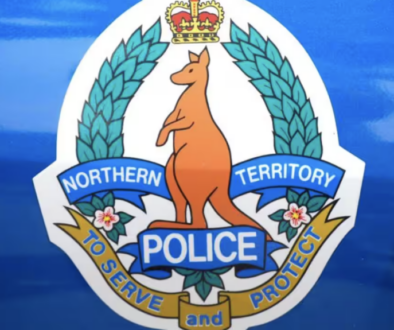Twenty years of discrimination: NT Aboriginal police officers make complaint to Human Rights Commission
Three Aboriginal serving police officers in the Northern Territory are alleging racial vilification and an unequal system of pay and promotion.
Three serving Aboriginal police officers have lodged a representative complaint against the Northern Territory Government and Police Commissioner with the Australian Human Rights Commission, alleging 20 years of racial discrimination.
In a landmark case, they complain of racial vilification and derision, and an unequal system of pay and promotion.
According to their lawyers, Levitt Robinson, it is the first time that current members of the police have taken collective action against the Territory and the Commissioner.
“The whole notion of having Aboriginal Community Police Officers (ACPOs), with lower pay and worse conditions, to police Aboriginal people, is inherently racist,” said Dana Levitt.
“Particularly where one-third of the population is Indigenous, and the work of policing disproportionately effects indigenous Territorians.”
Ms Levitt said she’d been told repeatedly by Aboriginal Community Police Officers that they joined the force to help their community, but have been frequently deployed by higher ranking officers in ways that they believe harm their communities.
Lawsuit comes in the wake of racism allegations
In February, during an inquest into the death of Warlpiri teenager Kumanjayi Walker, former constable Zachary Rolfe detailed an ingrained racist culture in NT police, where derogatory language and attitudes were normalised.
Mr Rolfe shot Mr Walker, 19, three times while on duty in the remote community of Yuendumu in November 2019, and was later charged with the teenager’s murder.
Rolfe was acquited following a five-week trial.
In the wake of the former officer’s claims, NT Police Commissioner Michael Murphy launched an investigation, but argued racism was not widespread in the force.
The commissioner himself apologised to Aboriginal Territorians for past harms and injustices caused by NT Police in a speech at Garma in August.
But the ACPOs say that the apology itself was offensive, as it implied that they had been complicit in the racist system rather than victims of it.
“The Commissioner should have been apologising to us, too,” according to several of the ACPOs who are being represented by Levitt Robinson.
The complaint to the Human Rights Commission details numerous incidents of racism towards Aboriginal officers and communities, including ACPOs being referred to as ‘SLACPOs’ and a lack of action by senior staff when an acting sergeant was reported for singing racist songs.
Chief Minister Lia Finocchiaro said in a statement that the claims “look to the past”.
“My focus for the NT Police Force is on its future and making sure our hardworking force has the support, resources and powers it needs to keep Territorians safe,” she said.
The lawyers acting for the ACPOs said that, in the event they don’t receive satisfaction through the Human Rights Commission, they will take the case to the Federal Court.
The case would claim damages for racial discrimination in respect of pay and conditions, as well as compensation for the officers’ pain and suffering, which they allege has been caused by systemic racism in the NT Police Service.
Contact us
Please provide a brief description of your claim.



